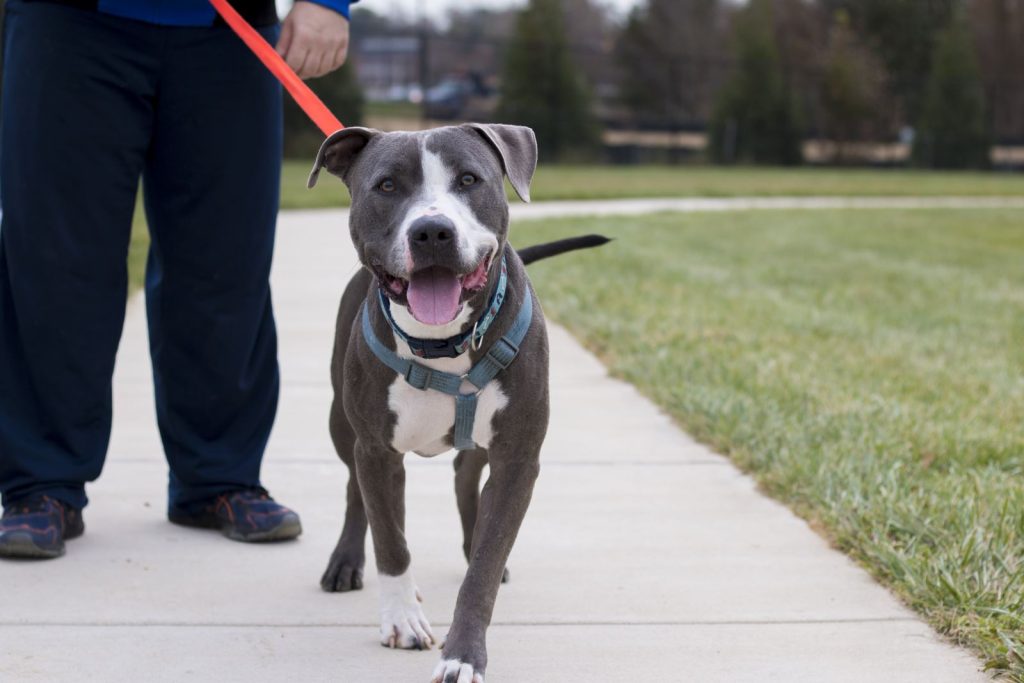Documentation and Legal Requirements for Animal Adoption: What You Need to Know

The Journey Towards Animal Adoption
Embarking on the journey of animal adoption can be both exciting and overwhelming. Before you open your heart and home to a new furry friend, it is crucial to be aware of the documentation and legal requirements that accompany this responsibility. Understanding these elements not only prepares you for adoption but also serves to enhance the overall experience for both you and your future pet.
Processes can vary significantly based on location, but here are some common elements to consider when pursuing adoption:
- Identification: Most shelters will require you to present a government-issued ID such as a driver’s license or state ID. This helps confirm your identity and eligibility as a potential pet owner.
- Application Forms: A completed application is typically required, detailing your personal information, experience with pets, and your living situation. This process not only helps the shelter assess your suitability as an adopter but also helps you reflect on your readiness.
- Home Checks: Certain agencies may conduct home inspections to ensure a safe and appropriate environment for the animal. This may involve checking for potential hazards or confirming that you have adequate space for the pet you wish to adopt.
- Adoption Fees: Be sure to understand any associated costs, which usually cover essential procedures such as vaccinations, spaying/neutering, and, in some cases, microchipping. These fees can vary widely, sometimes ranging from $50 to several hundred dollars depending on the shelter or rescue organization.
Moreover, it’s essential to recognize the legal implications associated with animal adoption. By signing adoption contracts, you are agreeing to specific terms that may include:
- A commitment to care for your new pet for its entire life, emphasizing the long-term responsibility required in pet ownership.
- Procedures to follow if you can no longer keep the animal, which might include returning the pet to the shelter or utilizing specific rehoming resources.
- Potential restrictions on breeding, as many shelters discourage or prohibit breeding practices to reduce overcrowding in shelters.
Having a clear grasp of these requirements not only enhances the chances of a successful adoption, but also sets a foundation for a lasting relationship with your new furry friend. By familiarizing yourself with common practices and regulations, you can approach the adoption process with confidence. Furthermore, understanding the long-term commitment involved can prove invaluable as you navigate this life-changing decision.
As you continue reading, you’ll uncover more about how to navigate the adoption process smoothly and ethically, paving the way for a fulfilling companionship with your new animal friend.

LEARN MORE: Click here for tips on creating a safe space for your furry friends
Understanding the Documentation Process
When preparing to adopt an animal, it is essential to familiarize yourself with the necessary documentation that shelters and rescue organizations often require. This step not only clarifies your commitment but also lays the groundwork for responsibilities once your new companion joins your family.
Here’s a breakdown of key documents you may need to present during the adoption process:
- Proof of Address: Many organizations will request a utility bill, lease agreement, or other official documents that verify your current address. This helps ensure that the animal will be going to a stable and secure environment.
- Pet History: If you have had pets in the past, shelters may ask for references from your previous veterinarians or pet providers. This assists in demonstrating your experience and responsibility as a pet owner.
- Financial Information: Some organizations may inquire about your financial ability to care for a pet. This could include proof of employment or income, as owning a pet entails ongoing costs such as food, healthcare, and grooming.
Each of these documents serves as a safeguard for the welfare of the pet. By requesting background history, shelters can better match animals with adopters who are equipped to meet their specific needs. For instance, someone with experience handling energetic breeds may be better suited for an active dog, while first-time owners might benefit from adopting an older, more relaxed animal.
Legal Considerations in Animal Adoption
Beyond the necessary documentation, you must also navigate several legal requirements inherent to adopting an animal. When you sign an adoption contract, it not only formalizes your relationship with the animal but also legally binds you to specific responsibilities. These contracts generally encompass:
- Lifetime Commitment: Most adoption contracts include clauses that emphasize your obligation to care for the animal throughout its life, which can frequently extend over a decade or more.
- Return Policies: If future circumstances prevent you from keeping the pet, many shelters require that you return the animal to them rather than rehome it through personal avenues. This stipulation protects the animal’s welfare and minimizes the risk of it ending up in a less-than-ideal situation.
- Restrictions on Breeding: Some adoption contracts will also contain provisions against breeding the animal. This policy serves a crucial role in addressing pet overpopulation and encourages responsible pet ownership.
Understanding the documentation and legal implications of pet adoption is critical for fostering a positive experience—for both you and the animal. By preparing ahead of time and being aware of the expectations placed upon you as an adopter, you not only streamline the process but also honor the commitment you are about to undertake.
As you continue your journey toward adoption, being informed about these aspects will enhance your capability to provide a loving and permanent home for your new pet.
| Category | Description |
|---|---|
| Adoption Application | Essential for assessing suitability of potential adopters, detailing living conditions, experience with pets, and intended care. |
| Legal Agreement | Protects the welfare of animals by stipulating responsibilities of the adopter, including care, veterinary attention, and return policy in case of inability to keep the pet. |
| Vaccination Records | Important documentation that confirms the animal’s vaccination status, preventing spread of diseases. |
| Microchip Information | Facilitates reuniting lost pets with their owners, as all pets should be registered with an updated microchip database. |
In the process of animal adoption, understanding the documentation and legal requirements is crucial. The adoption application serves as a foundation, allowing shelters to evaluate the adopter’s commitment and capability. By outlining expectations through a legal agreement, organizations ensure that animals are well cared for throughout their lifetime, thus safeguarding the welfare of pets. Keeping thorough vaccination records is indispensable, as they are key to a healthy environment and help mitigate health risks. Additionally, microchip information plays an essential role in reunification efforts, especially if a pet goes missing in the future. Each of these elements not only simplifies the transition for both the animal and the adopter but also fosters a responsible pet ownership culture. Stay informed and embrace the responsibilities that come with welcoming a new furry family member.
FOR MORE INSIGHT: Click here to learn more
Additional Requirements and Best Practices for Adopters
While the primary legal requirements and documentation are crucial in the adoption process, there are additional considerations that prospective pet owners should contemplate. These factors can further ensure a smooth transition for both the animal and the new owner, and help fulfill the responsibility of giving a pet a forever home.
In many states, certain local ordinances may require that dog owners license their pets with the local government. This licensing not only provides a way to connect owners with their lost pets but often includes vaccines that are mandated by law, such as rabies. In some areas, you may need to show proof of such vaccinations prior to or during adoption. Researching your local laws regarding pet ownership can prevent unforeseen complications and ensure compliance with community regulations.
Understanding Adoption Fees
Adoption fees often cover a range of essential services, including vaccinations, spaying or neutering, and health checks. Although the fees can vary significantly depending on the organization and location, it’s essential to view these costs as investments in your new pet’s health and well-being. For instance, adopting from a well-funded rescue may carry a higher fee but typically ensures more comprehensive services prior to adoption. Shelters usually charge between $50 to $200 for cats and dogs, helping to promote responsible pet ownership and financial accountability.
Home Inspections and Interviews
Some shelters or rescue organizations may conduct home inspections as part of their adoption process. While this may seem intrusive, it is meant to ensure that your home environment is safe and suitable for the animal’s needs. They may look at aspects such as fencing, living arrangements, and whether or not other pets in the household have appropriate socialization skills. Such evaluations help in identifying potential issues before they arise, establishing a safe environment for the animal.
Beyond inspections, the interview process may delve into your lifestyle, such as your daily schedule, activity level, and family dynamics. Being open during this discussion will aid in matching you with an animal that complements your lifestyle. For example, an active family may thrive with a playful dog, while a quieter household might find companionship with a mellower feline friend.
Microchipping and Identification
Another critical aspect of pet ownership often emphasized by shelters is the importance of microchipping your new animal. Microchips serve as a permanent form of identification, making it easier to reunite lost pets with their owners. Many rescue organizations will include microchipping in the adoption fee, further showcasing their commitment to the animal’s safety. Researching microchip registration and understanding how it works will empower you as a responsible pet owner.
In addition to microchipping, it is highly recommended to keep updated identification tags on your pets’ collars. These tags should contain your contact information, ensuring that any good Samaritan who finds your lost pet can quickly return them to you. The combination of microchipping and proper identification tags provides a robust safety net for your furry friend.
In summary, navigating the intricacies of the adoption process does not end with signing a contract; awareness of ongoing responsibilities is crucial. Understanding these nuanced aspects of documentation and legal requirements will lead to a successful adoption journey, equipping you for a fulfilling life with your new pet.
DISCOVER MORE: Click here to learn about the changes in the pet supply market
Conclusion
In conclusion, the journey of adopting a pet goes beyond the emotional allure of bringing a new companion home; it involves understanding the documentation and legal requirements essential for responsible pet ownership. A thorough grasp of local laws, necessary vaccinations, and licensing obligations is vital to becoming a compliant and informed pet parent. Awareness of adoption fees and the services they cover can also prevent unexpected financial burdens down the road, as these fees often reflect the health and safety provisions that shelters need to ensure for their animals.
Furthermore, engaging in a diligent interview process and allowing home inspections fosters a supportive environment for both the pet and the new owner. These steps not only assure the organization of your commitment but also assist you in making an informed match that aligns with your lifestyle and household dynamics.
Finally, implementing practices like microchipping and maintaining updated identification can significantly bolster your pet’s safety and reunification prospects in case they wander off. Each of these facets demonstrates a deeper commitment to responsible care and living with an adopted animal. As you embark on this rewarding journey of animal adoption, equipping yourself with comprehensive knowledge regarding documentation and legal requirements will pave the way for a cherished relationship with your furry friend. Remember, a well-prepared adopter is the key to a successful transition and a joyful lifelong bond.


